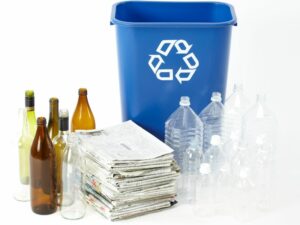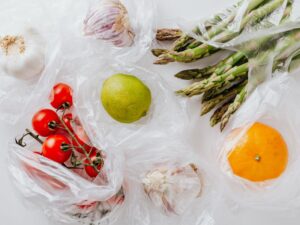Posts Tagged ‘plastic’
Recycling – Why is it important?
Recycling conserves natural resources and lets us skip the harmful extraction and refining process that goes into making products from virgin materials. Making stuff from the materials of other stuff uses less energy and water and stops that stuff from filling our landfills. Recycling one… Plus, recycling accounts for 3.1 million jobs in the U.S.…
Read MoreEPS Food Container Alternative List
EPS is “expanded polystyrene,” commonly known by the brand name Styrofoam™. There are environmental concerns with EPS, including difficulty in recycling, source of man-made marine debris, and greenhouse gas emissions from the embedded energy of the manufacturing process. Additionally, EPS food containers are not fully recyclable in a single-stream process because they break up in…
Read MoreFrom the Rotline: Are all Biodegradable Plastics Compostable?
Rotline Question: What is the difference between biodegradable plastics and compostable plastics? Answer: Plastic that is compostable is biodegradable, but not every plastic that is biodegradable is compostable. Biodegradable plastic may be engineered to biodegrade in soil or water, whereas compostable plastic refers to biodegradation into soil conditioning material (i.e., compost) under a certain set…
Read More#PlasticFreeJuly – Choose to Refuse!
It is no secret how much we rely on plastic in our lives. You can hardly go a few minutes without seeing plastic in some form and now more than ever articles or news stories covering the negative impacts on our environment are prevalent. To most of us, it makes us sad, and mad. And many of us are…
Read MoreZero Waste Tip: How to Recycle Your Plastic Bags
We’re all about banning the bag and using reusable options where possible. But even those leading a dedicated zero waste lifestyle run into instances where products come in a plastic film – such as the wrapper around toilet paper. When you are faced with a situation where you can’t avoid plastic packaging, what do you do…
Read More


